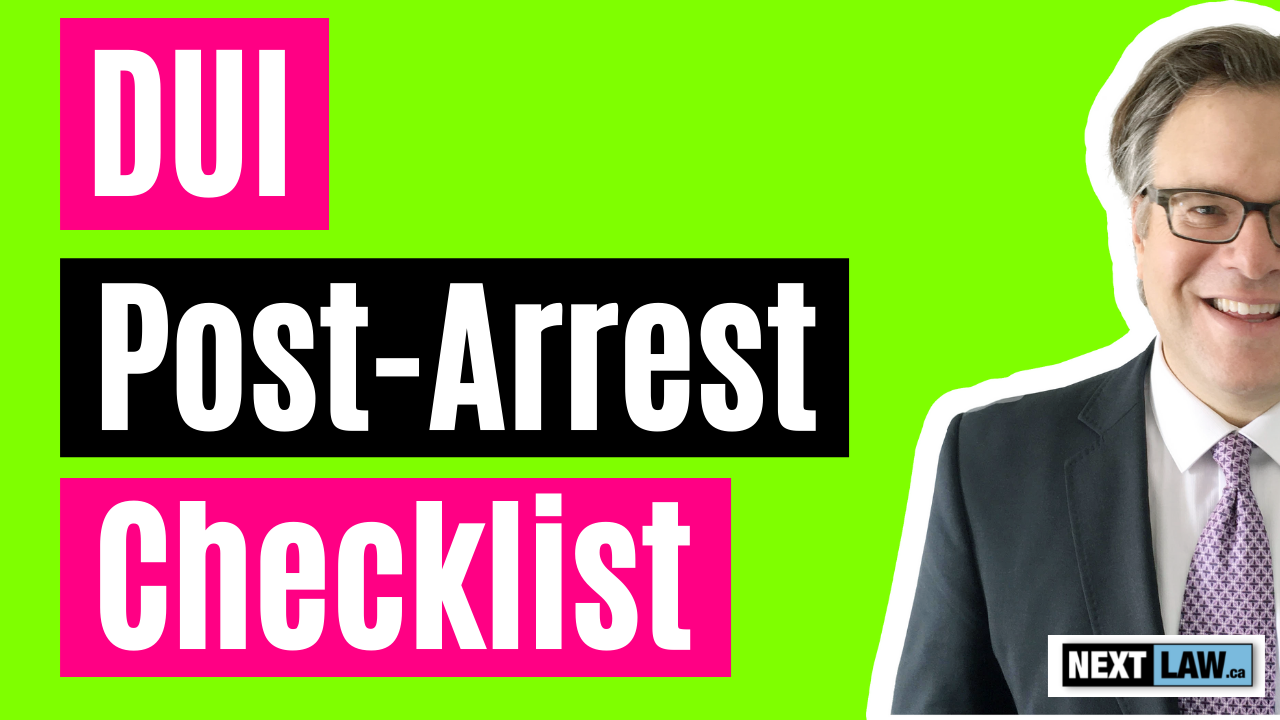Here is the checklist of things to do after you’ve been arrested for a DUI in Ontario.
1/ Confirm details regarding your vehicle.
- On your arrest, the Police will have ordered your vehicle impounded for at least 7-days.
- Contact the tow yard holding your vehicle to confirm the date and time you can get your car and the total cost of the impound.
- If the tow yard tells you that your vehicle will be impounded for longer than the 7 days, you will need to contact the Police to clarify the 7-day impound timing.
- Also, if you don’t know where your vehicle is being held, you should contact the Police so they can let you know.
- If you need to contact the Police, make sure you contact the non-emergency phone number of the police division that arrested you.
2/ Plan for your 90-day licence suspension
- So, in addition to the 7-day vehicle impoundment, the Ministry of Transportation of Ontario will impose an immediate 90-day licence suspension.
- You must make immediate arrangements not to drive during these 90 days.
- You may need to lean on family or friends to help you out.
- Or, if you don’t have family or friends to help, you may need to revert to public transit or expensive Ubers.
- It is critical that you do not drive during this 90-day licence suspension.
- You will be subject to new, additional charges if you get caught driving during this 90-day licence suspension.
- And, getting caught driving during this 90-day licence suspension will potentially harm your current DUI case.
3/ Consult with DUI lawyers
- If you’re convicted of Impaired Driving, Over 80, or Refusal to take a breathalyser test, you could face life-changing penalties.
- So it is essential to speak with different lawyers to find out what your options are.
- Even if your money is tight, the investment you make in finding a great DUI lawyer can make the difference between winning and losing your drunk driving case.
4/ Consult with DUI lawyers only
- DUI laws are complex, and they go deep.
- To give you context, DUI laws in the Criminal Code of Canada take up more than 60 pages.
- Compare that to laws on murder, which take up less than 20 pages in the Criminal Code.
- This is why lawyers specialize in DUI defence since the law is so complex.
- And lawyers that focus on DUIs are much better able to help you with your impaired driving charge than a regular criminal lawyer.
What should I do immediately after being arrested for a DUI?
If you've been arrested for a DUI, it's important to remain calm and take certain steps to protect your rights. You should consider retaining an experienced DUI lawyer as soon as possible, as they can help guide you through the process and ensure your rights are protected. It's also important to be cooperative with the police and avoid making any statements that could be used against you in court.
What information should I gather after being arrested for a DUI?
After being arrested for a DUI, it's important to gather as much information as possible about the circumstances of your arrest. This may include the location of the arrest, the type of test that was conducted, the results of any tests, and the names and contact information of any witnesses. You should also make note of any physical or medical conditions that may have affected your ability to perform a sobriety test. Having this information can be valuable to your DUI lawyer as they work to build your defence.



